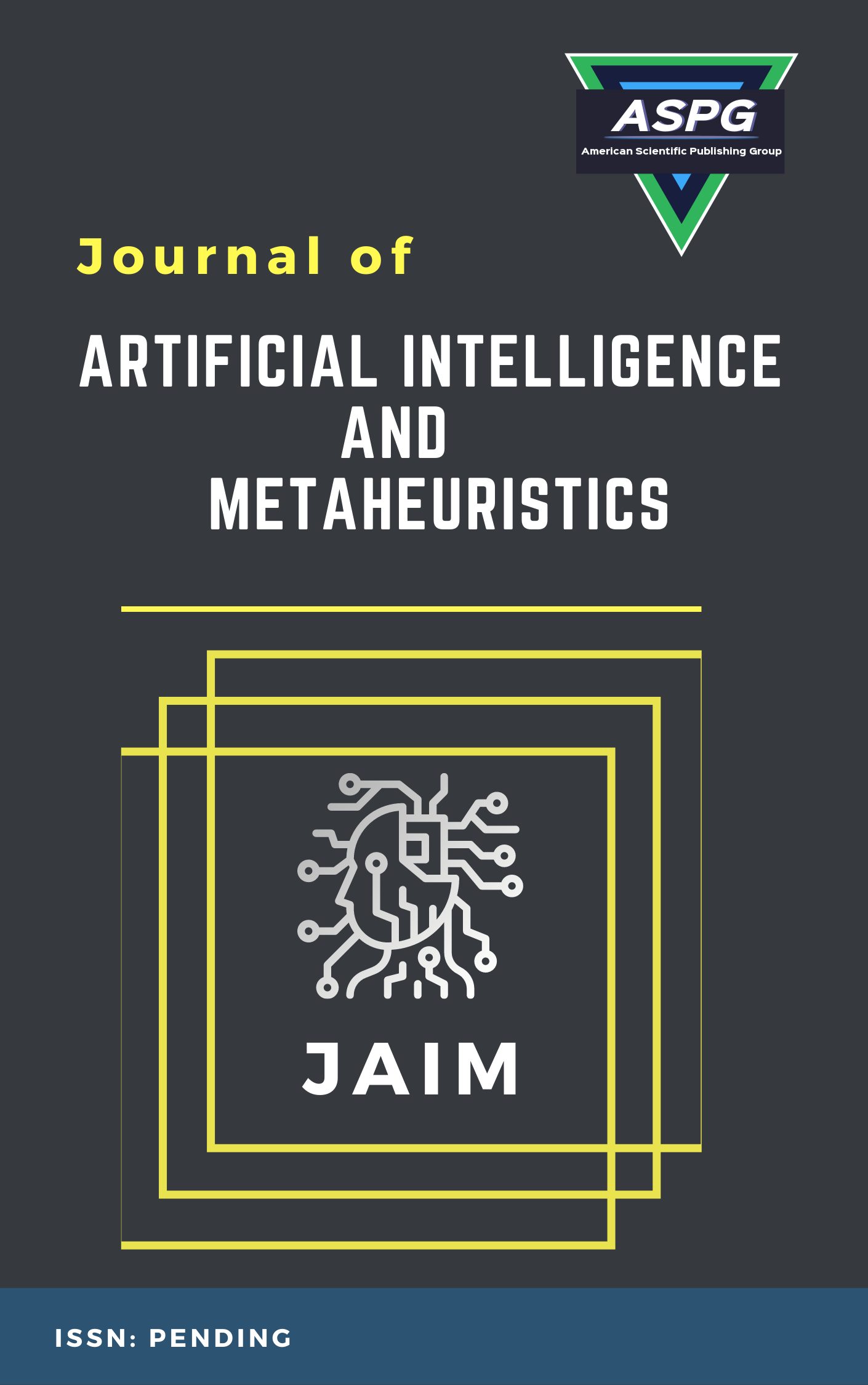

Volume 2 , Issue 2 , PP: 46-55, 2022 | Cite this article as | XML | Html | PDF | Full Length Article
H. K. Al-Mahdawi 1 * , Mostafa Abotaleb 2 , Hussein Alkattan 3 , El-Sayed M. El-Kenawy 4 , E. M. Mohamed 5
Doi: https://doi.org/10.54216/JAIM.020205
In this work, the inverse initial value problem IVP for the heat equation is formulated and solved. Initial temperature (initial condition) distribution is unknown in this problem, and instead, the temperature spreading at period t= T> 0 is assumed. Among mathematical problems, a class of problems is singled out, the solutions of which are unstable to minor variations in the initial information. It is well identified that this problem is ill-posed. In order to solve the direct problem, we has used the separation of variables way. Note that the method of separation of variables is completely inapplicable for solving IVP, since it principals to rather errors, also divergent series. Ivanov V.K. noticed that if the inverse problem IP is solved by the method separation of variables, and then the resulting series is changed by a incomplete sum of the series, in which the term number is depending on δ, N=N(δ), then as a result we obtain a stable approximate solution. The Picard method customs a regularizing family of operators that map space to same space.
Inverse problem , Picard , Ill-posed , Initial value problem
[1] S. I. Kabanikhin, INVERSE AND ILL-POSED PROBLEMS. Sib. Elektron Mat. Izv.,7, 2010.
[2] A. N. Tikhonov, On the solution of ill-posed problems and the method of regularization. Dokl. Akad. Nauk SSSR,151(3), 501–504, 1963.
[3] M. M. Lavrentiev, THE INVERSE-PROBLEM IN POTENTIAL THEORY. Dokl. Akad. Nauk SSSR, 106 (3), 389–390, 1956.
[4] V. K. Ivanov, The application of Picard’s method to the solution of integral equations of the first kind. Bull. Inst. Politenn. Iasi.,14, 71–78, 1968.
[5] V. K. Ivanov, Uniform regularization of nonstationary problems. Sib. Math. J., 7(3), 441–449, 1966.
[6] V. P. Tanana and A. I. Sidikova, Optimal Methods for Ill-Posed Problems: With Applications to Heat Conduction. Walter de Gruyter GmbH & Co KG, 62, 2018.
[7] A. G. Goncharskii, A.V. Leonov, A.S., Yagola, Finite-Difference Approximation of Linear Ill-Posed Problems. Zh. Vych. Mat. Mat. Fiz, 14(4), 4, 1022–1027, 1974.
[8] V. K. Ivanov, V. V. Vasin, and T. V.P., Theory of Linear Ill-Posed Problem and Application. Nauok Moscow, 1978.
[9] V. P. Tanana, Projection methods and finite-difference approximation of linear incorrectly formulated problems. Sib. Math. J., 16 (6), 999–1004, 1975.
[10] V. V. Vasin, Discrete convergence and finite-dimensional approximation of regularizing algorithms. USSR Comput. Math. Math. Phys., 19(1), 8–19, 1979.
[11] V. P. Tanana and A. I. Sidikova, On Estimating the Error of an Approximate Solution Caused by the Discretization of an Integral Equation of the First Kind. Proc. Steklov Inst. Math., 299(1), 217–224, 2017.
[12] V. P. Tanana, E. Y. Vishnyakov, and A. I. Sidikova, An approximate solution of a Fredholm integral equation of the first kind by the residual method. Numer. Anal. Appl., 9(1), 74–81, 2016.
[13] B. T. Al-Nuaimi, H. K. Al-Mahdawi, Z. Albadran, H. Alkattan, M. Abotaleb, and E.-S. M. El-kenawy, Solving of the Inverse Boundary Value Problem for the Heat Conduction Equation in Two Intervals of Time. Algorithms, 16(1) 33, 2023.
[14] G. G. Skorik and V. V. Vasin, Regularized Newton type method for retrieval of heavy water in atmosphere by IR spectra of the solar light transmission. Eurasian J. Math. Comput. Appl., 7(2), 79–88, 2019.
[15] L. D. Menikhes and V. P. Tanana, The finite-dimensional approximation for the Lavrent’ev method. Sib. Zhurnal Vychislitel’noi Mat.,1(1), 59–66, 1998.
[16] A. I. Sidikova and H. K. Al-Mahdawi, The solution of inverse boundary problem for the heat exchange for the hollow cylinder. in AIP Conference Proceedings, 2398(1), 2022.
[17] H. K. I. Al-Mahdawi, M. Abotaleb, H. Alkattan, A.-M. Z. Tareq, A. Badr, and A. Kadi, Multigrid Method for Solving Inverse Problems for Heat Equation. Mathematics, 10(15), 2802, 2022.
[18] H. K. I. Al-Mahdawi, H. Alkattan, M. Abotaleb, A. Kadi, and E.-S. M. El-kenawy, Updating the Landweber Iteration Method for Solving Inverse Problems, Mathematics, 10(15), 2798, 2022.
[19] H. K. Al-Mahdawi, A. I. Sidikova, H. Alkattan, M. Abotaleb, A. Kadi, and E.-S. M. El-kenawy, Parallel Multigrid Method for Solving Inverse Problems. MethodsX, 101887, 2022.
[20] R. Plato, P. Mathé, and B. Hofmann, Optimal rates for Lavrentiev regularization with adjoint source conditions. Math. Comput., 87(310), 785–801, 2018.
[21] R. Plato, The Product Midpoint Rule for Abel-Type Integral Equations of the First Kind with Perturbed Data. New Trends in Parameter Identification for Mathematical Models, Springer, 195–225, 2018.
[22] V. B. Glasko, N. I. Kulik, I. N. Shklyarov, and A. N. Tikhonov, An inverse problem of heat conductivity. Zhurnal Vychislitel’noi Mat. i Mat. Fiz., 19(3), 768–774, 1979.
[23] A. S. Belonosov and M. A. Shishlenin, Continuation problem for the parabolic equation with the data on the part of the boundary. Siber. Electron. Math. Rep., 11, 22–34, 2014.
[24] S. I. Kabanikhin, A. Hasanov, and A. V Penenko, A gradient descent method for solving an inverse coefficient heat conduction problem. Numer. Anal. Appl.,1(1),1, 34–45, 2008.
[25] A. G. Yagola, I. E. Stepanova, Y. Van, and V. N. Titarenko, Obratnye zadachi i metody ikh resheniya. Prilozheniya k geofizike, Inverse Probl. Methods their Solut. Appl. to Geophys. Moscow Binom. Lab. znanii, 2014.
[26] S. I. Kabanikhin, O. I. Krivorot’ko, and M. A. Shishlenin, A numerical method for solving an inverse thermoacoustic problem. Numer. Anal. 6(1), 34–39, 2013.
[27] V.P. Tanana, On thr order-optimality of the projection regularization method in solving inverse problems. Sib. Zhurnal Ind. Mat., 6 (1), 34-39, 2013.
[28] Ivanov V.K., Vasin V.V., Tanana V.P. Theory of Linear Ill-Posed Problem and Application. Nauok Moscow, 87–95, 1978.
[29] Ivanov, V.K About Application of Picard Method to the Solution of Integral Equations for the First Kind. Bui. Inst. Politehn. Iasi., 4 (34), 71–78. 1968.